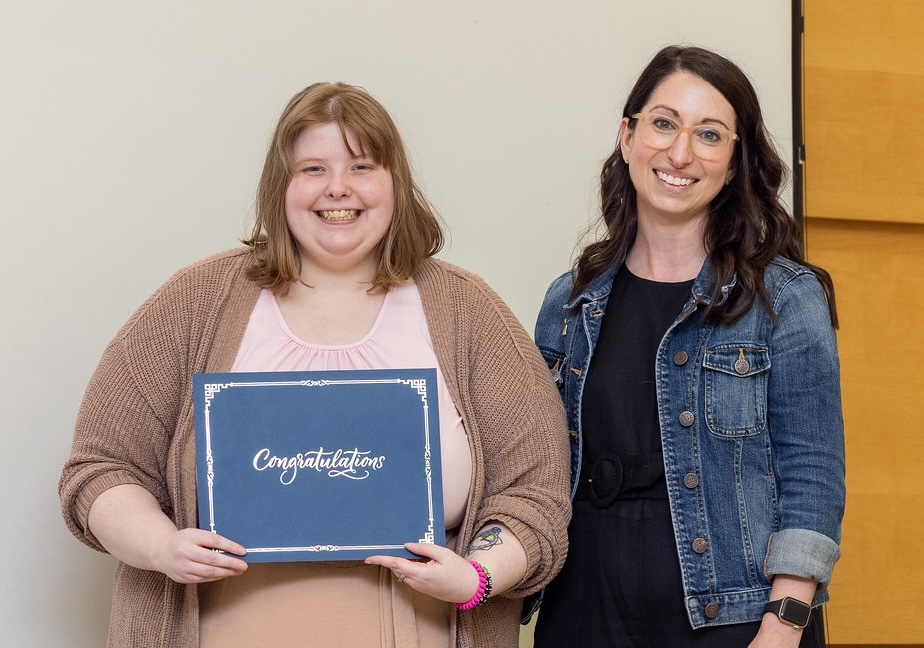
Office of Accommodations and Disability Services (OADS) coordinator Vivi Meder and her colleagues will do everything they can to help students thrive. In addition to her role with OADS, Meder is the director of TRiO, which provides additional wraparound services for students who are low income, have a documented disability and/or are a first-generation college student.
Meder said every year students who are struggling in class, but unsure why, come to her office. In order to receive accommodations for their courses, they must have a diagnosed disability. Some students, especially those who aren’t coming to the college right out of high school, are unaware they may have a disability which would qualify them for accommodations.
There are a variety of accommodations students might receive, some of which may be temporary, such as a student who has an injury and might arrive late to class, or who might have to miss classes and assignments due to surgery. Other accommodations could be for students with learning differences, or who have mental health or physical disabilities.
Students might receive more time to complete assignments or tests, or might wish to take a test in a quieter location. Another accommodation could be that professors not assign the student more than one large test on the same day. Meder added some students’ accommodations could include the use of a support animal.
Undergoing testing to see if there is an underlying disability can be a financial burden for students, especially those without insurance, said Meder. Thankfully, OADS received a $5,000 United Way Community Impact Grant which pays for students to undergo psychological evaluations and academic testing, so if they are diagnosed with a disability or disorder, they can receive the accommodations they need.
“We have already referred three students and we have one student currently scheduled to complete their testing,” Meder said at the beginning of the fall 2024 semester. “This grant removes a pretty significant barrier for our students.”
She expects the funding to run out before the end of the year. In that situation, Meder said, the office would follow the procedures in place prior to the grant – reach out to Laurel Ridge’s social worker and other community providers to see how the student could be helped. The social worker could help the student acquire insurance and refer them to testing or a doctor’s office visit.
Around 300-400 students receive accommodations at Laurel Ridge, Meder said. Her office is building out a customized software program that streamlines accommodation services – it organizes applications, keeps sensitive documents safe, communicates with faculty and staff about accommodation needs – with the help of Salesforce.
Learn more about OADS at laurelridge.edu/OADS.
